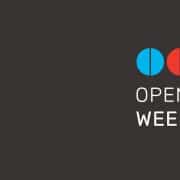|
Getting your Trinity Audio player ready...
|
Source: Open Government Partnership
When eight governments and nine civil society leaders launched the Open Government Partnership (OGP) in 2011, no one expected it to reach its current size and scope. Over the last 10 years, however, OGP has grown in ways that have exceeded expectations. Governments and thousands of civil society members have, together, co-created more than 4 500 commitments across 300 action plans in 78 countries. Hundreds of these commitments have already changed how the governments work despite a global political environment increasingly hostile to openness. Behind each and every commitment, there is a story of reformers and reform. When these reforms are taken together, they show that OGP works. They also provide us the seeds for a democratic renewal.
DOWNLOADS
Directions of growth
OGP has grown thanks to the contributions and dedication of reformers from all corners of government, civil society, and beyond. OGP expanded in three directions: its membership, its government stakeholders, and the diversity of its participants.
OGP’s membership has expanded rapidly since its founding. OGP began as a partnership of just eight members and expanded to 78 national members by 2018. Today, the partnership continues to grow, primarily thanks to the expansion of the local program, which now has 76 members.
OGP processes and commitments have increasingly included different branches and levels of government. While OGP began as an initiative of the executive branch, there have always been a considerable number of commitments from other branches of government. Legislatures, judicial institutions, and subnational government entities play a critical role, acting as checks on the abuses of the executive and as laboratories for innovation.
Participation in OGP is becoming more inclusive and equitable. Efforts to make action plans more inclusive have resulted in greater diversity in OGP processes and significant growth in the number of commitments that expressly focus on making governance more equitable.
The OGP model works
The OGP model, in short, is based on the idea that civil society and government co-create two-year action plans with concrete, ambitious commitments. These commitments are then credibly implemented, helped by partner organisations from around the world and assessed by an independent reporting mechanism. This results in more open governments, better policies, and improvements in people’s lives.
An emerging body of evidence suggests that the various parts of the OGP platform work:
- Joining OGP: Several countries have implemented open government reforms to become eligible to join OGP. For example, OGP membership provided an important lever for Morocco to pass a long-awaited right to information bill in 2018. The eligibility criteria have also prevented non-democratic countries from joining.
- Action plans: Civil society is increasingly involved in the action plan process, and this is linked to stronger action plans and results. Meanwhile, commitments are covering more topics and are producing concrete changes in open government practices.
- Beyond action plans: OGP is driving the creation of new networks and peer-learning opportunities, showcasing innovative reforms and ensuring domestic implementation of high-level global pledges. OGP has also responded to threats to civil and political rights in several member countries.
Of course, not every OGP member follows the OGP process. This represents an area for continued improvement and investment.
Progress through policy areas
The OGP process outlined above creates a foundation on which reformers can work together to renew democracy across a range of policy areas. These reforms make governments more open and engage citizens and civil society every day, not just every few years when they cast their vote. In the last 10 years, OGP members have made commitments in dozens of policy areas. This report focuses on four main clusters of reforms.
OGP commitments open up institutions to build trust and fight corruption by creating publicly accessible beneficial ownership registers and open contracting data. Open fiscal policy allows civil society groups to follow the money and inform decisions across a number of areas—from revenues and budgets, to spending and audits. For example, in Italy, a group of teenagers used data from the country’s public contracting register to make sure public funds were being spent the right way.
OGP commitments engage citizens to shape public policies and services. This includes vital public services, such as access to water, healthcare, and education through better transparency, deliberation, and accountability. Members are also using OGP action plans to increase citizen participation in environmental management and the use of natural resources as well. For example, in Ecuador, reformers used their country’s first action plan to implement the Escazú Agreement, a regional treaty to protect environmental defenders, strengthen the right to information, and access to justice.
OGP commitments tackle inequality, including commitments that empower people that have been excluded from decisions before. For example, in Nigeria, the government and activists are working together to develop comprehensive guidance on use of force by police during peaceful protests. In the Philippines, women’s rights organisations are demanding more relevant reform through the action plan. Tackling inequality requires reining in state capture as well as building solidarity, as Scotland has done on its national deliberation on inequality.
OGP commitments are building more resilient democracies, combating disinformation, protecting privacy, stopping illicit money in politics, reining in abuses by big tech, strengthening the media environment, and protecting free expression online. In Mexico, civil society organisations are working with the government to create oversight mechanisms for the use of surveillance in the wake of revelations about the government’s improper use of surveillance software.
A changing global context for open government
Despite ten years of progress for OGP and open government efforts, democracy is backsliding. After 15 years of decline in civil liberties, democratic decline has now spread; dozens of studies show erosion in rule of law and electoral integrity and a rise in discrimination. OGP countries have not been immune from this trend. Most OGP countries have seen a decline in civil liberties over the decade, and some, like Hungary, have even left the partnership on this basis. Others, like Azerbaijan, have been suspended following documented harassment of civil society organisations.
On the other hand, people are using their voice in unprecedented ways; public protests reached an all-time high just before the global pandemic and countries around the world are adopting deliberative approaches to hear from citizens about climate solutions, inequality, and constitutional reform.
Where we go from here
Several challenges remain if OGP is to reach its full potential. The evidence shows that the OGP model delivers results when used as designed. However, more remains to be done. Three issues, in particular, have not improved or have declined over the course of the first decade of OGP:
- Ambition at scale: OGP commitments are supposed to change the way each government does business and delivers for citizens. But overall, levels of ambition have slightly declined over time. The data shows that ambitious commitments are the most likely commitments to produce concrete results, so this deserves collective attention and resources.
- Implementation at scale: While overall rates of implementation have remained steady, several OGP members struggle to fulfil their commitments, particularly low-income countries. Lack of resources may be a contributing factor in many cases, but improving implementation across the partnership will need more than just funding.
- Democratic fundamentals: OGP could do more to address public accountability, civil and political rights, and political integrity. The number of OGP commitments that deal with public accountability has fallen to an all-time low of about 5%. Commitments that address civil liberties are similarly too few and far between. OGP members could also do more to address critical areas of political integrity, such as asset disclosure and political finance.
Toward democratic renewal
OGP works. The last decade has seen hundreds of meaningful reforms that make government more open, more participatory, and more accountable. This happened because people—whether politicians, activists, civil servants, or international organisations—made it happen, working together. It happened because they chose to take part in an experiment, to join an unproven international partnership.
Over the course of the decade, that experiment paid off and the results have multiplied. Civil society groups have fought for hard-won change and governments have had political cover to undertake difficult reforms. Most importantly, they brought tangible gains and concrete opportunities for real people.
The challenges the world faces, however, are no ordinary challenges. Taking full advantage of the power and potential of the partnership, therefore, requires doubling down on what works and squarely facing what does not. The seeds of a better democracy are evident across OGP, but we will need to do more if we are to solve our simultaneous health, economic, social, environmental, and democratic crises.
We have spent a decade growing our strength. Now is the time to use it.








